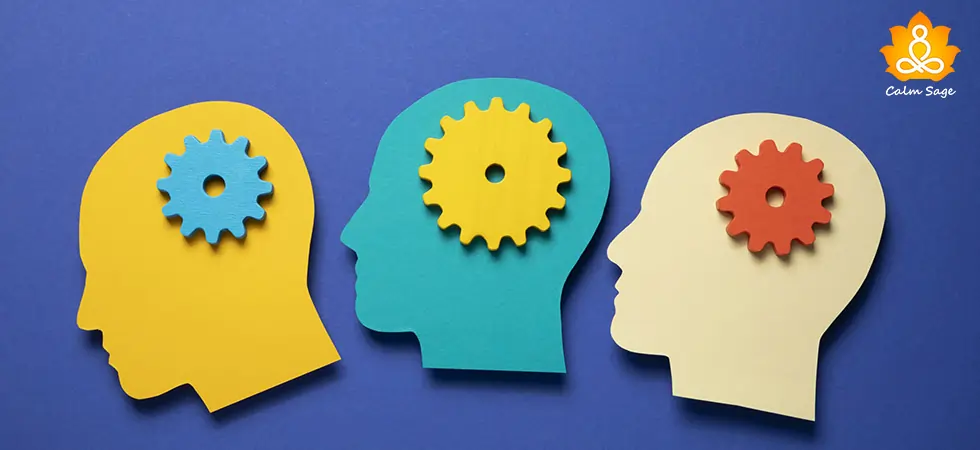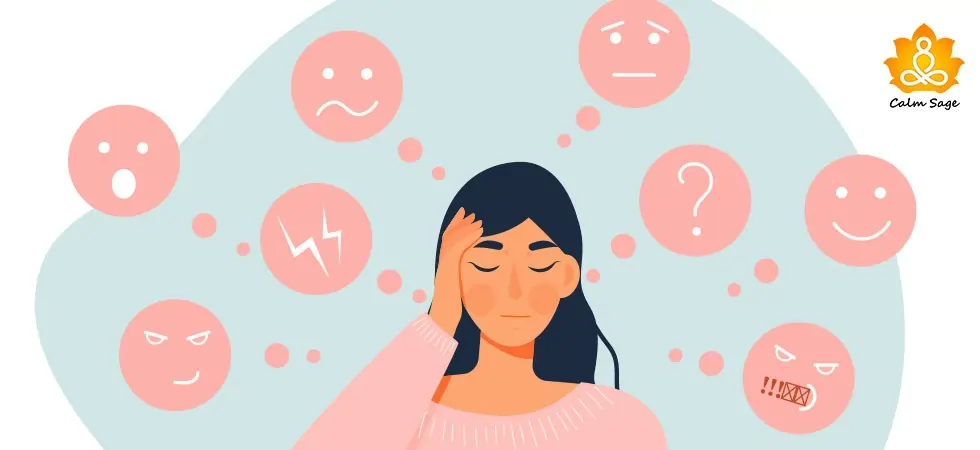How To Deal With A Thought Disorder? Who Is At Risk

A thought disorder is characterized by disorganized thinking that results in disorganized speech. Thought disorder is a key symptom of many mental health related disorders. When someone has a thought disorder, thinking is not organized at all and this disorganization in your thinking makes it very difficult for you to express your feelings.
Want to know more about thought disorder?
What Is Formal Thought Disorder?

A thought disorder is a mental health condition wherein the thinking is hampered. It affects the way you think, feel and express your emotions. It also has an impact on your perception and beliefs.
Simply put, a thought disorder has the capability to alter the way you perceive things and also alter the order of information that you gather. This alteration then confuses you and creates a completely different scenario in your mind that you begin to experience hallucinations and delusions.
Formal thought disorder affects the process of thinking which is then visible in your speech. With thought disorder your speech is problematic, away from logic or incoherent in nature.
Do you know what our thought process looks like? It follows a pattern:
- Subject of your thoughts
- Stringing thoughts together on the subject
- Delivering the conclusion
A thought disorder disrupts your thought process. It makes your thoughts disorganized or can disturb any of these 3 parts of your thought process. The disturbance is often visible in our language, our conversations, basically in our speech.
Having said that, a thought disorder is not related to speech disorder at all. In speech related disorder there is difficulty in speaking, whereas in thought disorder, speech is just an indicator of the disorder, you will not experience any difficulty in speaking.
Signs And Symptoms Of A Thought Disorder
Since thought disorder is always accompanied by other mental health related disorders. The symptoms will appear to have mixed with symptoms of other conditions too. However, it does have its distinct symptoms as well. Such as;
- Illogical and incoherent speech
- Chain of thoughts breaks easily easily while talking
- An irrational belief that your thoughts have been removed from your mind by someone
- Becomes delusional
- Tangential speech (talk about unrelated topics all together)
- Inability to tell a story or even convey your thoughts
- Inability to remain on one topic
- Rapid and pressured speech
There are some other symptoms as well but they are usually because of the coexisting psychological illness that you are suffering from alongside thought disorder. You can have
- hallucination
- delusions
- paranoia
- emotional numbness
- lack of expression
- Poor judgement
- Irritability and frustration
Causes Of A Thought Disorder
A distinct cause of thought disorder remains unknown but some learned people from the field of psychology state that some variables like genetics, abnormalities in the brain or some external factors can have an influence on your thought process.
Other than these, there are some mental health conditions which seem to coexist with thought disorder, hence they can be one of the reasons you develop a thought disorder.
- Schizophrenia
- Psychosis
- Schizoaffective disorder
- Postnatal depression
- Drug withdrawal syndrome
How Is A Thought Disorder Treated?

Just like other mental health related issues, a thought disorder can also be treated with the help of a mental health professional. You can be prescribed either medication or therapy is also a great option.
1. Medication: the medicines are similar to that of schizophrenia. Your doctor might prescribe you an antidepressant, antipsychotics or a mood stabilizer.
2. Therapy: there are quite a few therapies that address conditions like formal thought disorder. Therapies like
3. Cognitive behavioral therapy: CBT will help you understand your distorting thinking and unorganized thought process
4. Family therapy: This is basically for you friends and family to understand your condition and help you cope with it
5. Group therapy: Group therapy is basically to find the strength and support that you need to deal with your struggles because of a thought disorder.
If you can’t find professional help on your own, we are here to help you!
With treatment you also need to learn a few coping strategies for your thought disorder so that your standing of living is improved.
6. Stress management techniques: stress is one reason as to why your symptoms worsen time and again. Managing stress through some relaxation techniques can really help.
7. Social skill training: in thought disorder your communication skills are heavily hampered and getting yourself skill trained for social gathering can help you communicate and behave better in a social setting.
8. Social support: people with thought disorder or though related disorders are easily alienated from society. Each one of us needs a social support system. Not only the sufferer of a thought disorder but even friends and family can benefit from social support.
Endnote
A formal thought disorder is having an unorganized thought process. The miss-match in your strings of thoughts is reflected in your speech. Our conservations are seen as illogical and problematic to others because of our disorganized thoughts, feeling, beliefs and perception.
I hope you found this blog helpful. If you know someone struggling with a thought disorder make sure you encourage them to seek [professional help. Be compassionate towards people with thought disorders, they are already dealing with a lot of pain.
Thanks for reading,
Take care and stay safe.




















